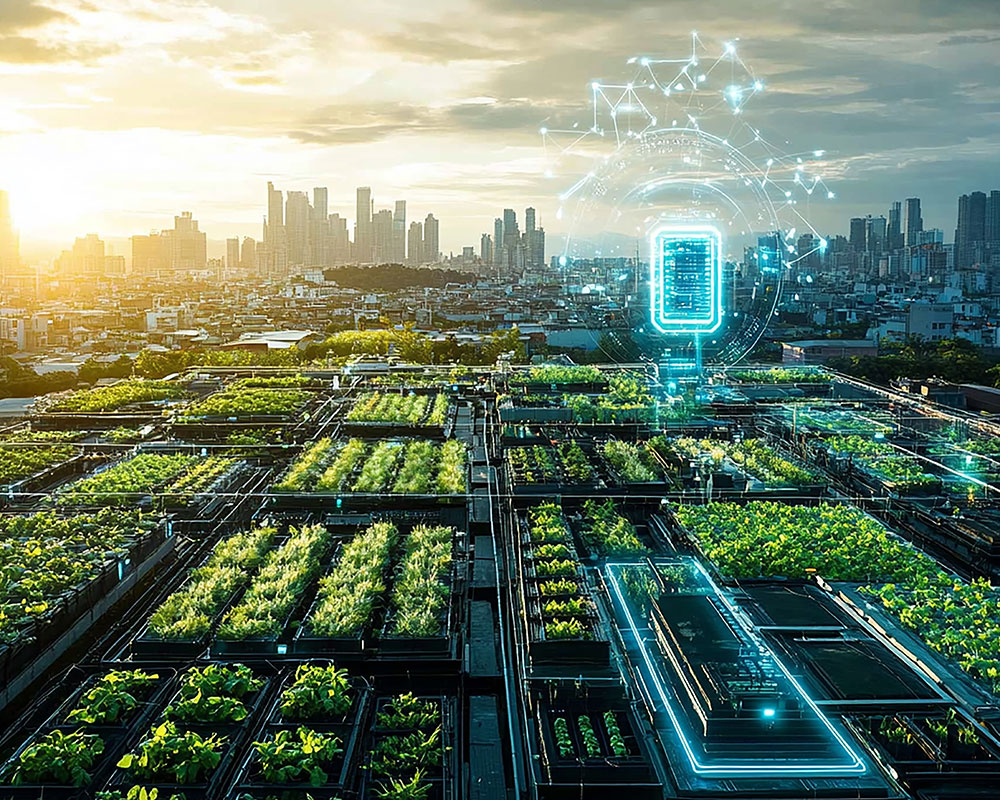Climate Control Technologies in the Agricultural Sector
Agricultural production becomes efficient when the right environmental conditions are ensured. Climate control systems, which have a significant impact on plant growth, development, and product quality, have become indispensable in modern agriculture. Climate control technologies optimize plant and animal production by regulating environmental factors such as temperature, humidity, airflow, and carbon dioxide levels in greenhouses, farms, and agricultural facilities.
1. Climate Control Technologies in Greenhouse Cultivation
Greenhouse cultivation is one of the agricultural sectors where climate control technologies are most intensively used. Greenhouses enable plants to be grown under optimal conditions in a controlled environment. Climate control systems allow year-round production in greenhouses, helping to achieve high yields regardless of seasonal changes.
Companies like MCM Engineering have successfully completed climate control projects covering over 15 million m² of greenhouse area. Thanks to smart sensors and automation systems used in these projects, temperature and humidity are automatically adjusted according to the specific needs of the plants. This optimizes growth conditions, resulting in higher quality and more productive crops.
2. Temperature and Humidity Control in Agricultural Facilities
Climate control technologies play a vital role not only in greenhouses but also in other areas of agricultural production. In poultry farms, dairy production facilities, and livestock operations, temperature and humidity control are critical for animal health and productivity. Excessive heat, especially during hot summer months, can increase stress levels in animals, reducing productivity and even causing fatalities. Advanced climate control systems provide an ideal environment in these facilities, protecting animal welfare and enhancing efficiency.
The systems designed by MCM Engineering regulate not only temperature but also air quality, ensuring animals remain healthy and productive. Automation technologies continuously monitor temperature and humidity levels, intervening automatically when necessary.
3. Smart Climate Control and Automation Systems
In modern agriculture, climate control systems are no longer operated manually. Thanks to smart sensors and software-based automation solutions, environmental conditions can be monitored and optimized in real time. Advanced automation systems provided by MCM Engineering are used across various applications, from greenhouses to livestock facilities.
These systems measure temperature, humidity, CO₂ levels, and sunlight in each area to create the most ideal environment. Smart automation increases energy efficiency and prevents unnecessary energy consumption, while also promoting healthier growth conditions for plants and animals, leading to improved yields.
4. The Importance of Sustainable Agriculture and Climate Control Systems
Climate change and dwindling water resources pose significant threats to agricultural productivity. Therefore, sustainable farming methods are essential for the long-term continuity of agricultural production. Climate control systems help manage environmental factors to use resources more efficiently. They make significant contributions especially in water conservation and energy efficiency, playing a central role in sustainable agricultural practices.
Companies like MCM Engineering offer innovative and environmentally friendly climate control solutions that minimize energy and water use while maximizing productivity. This benefits both the environment and agricultural enterprises.
5. MCM Engineering’s Climate Control Projects in Agriculture
MCM Engineering is an engineering group active in over 50 countries worldwide in agricultural climate control technologies. Using advanced ERP systems to monitor all processes, the company undertakes projects aimed at sustainability and efficiency in agriculture. Their climate control solutions increase long-term profitability in agricultural facilities by leveraging their extensive experience and technological infrastructure.
Beyond temperature and humidity regulation, MCM Engineering integrates critical systems such as ventilation, filtration, and water management to provide comprehensive solutions in their agricultural projects.
Conclusion
Climate control technologies are an indispensable part of modern agriculture. Experienced firms like MCM Engineering enhance sustainability and maximize productivity through innovative solutions. Smart climate control systems create healthier and more efficient environments for both plant and animal production, providing agricultural enterprises with a competitive advantage.


